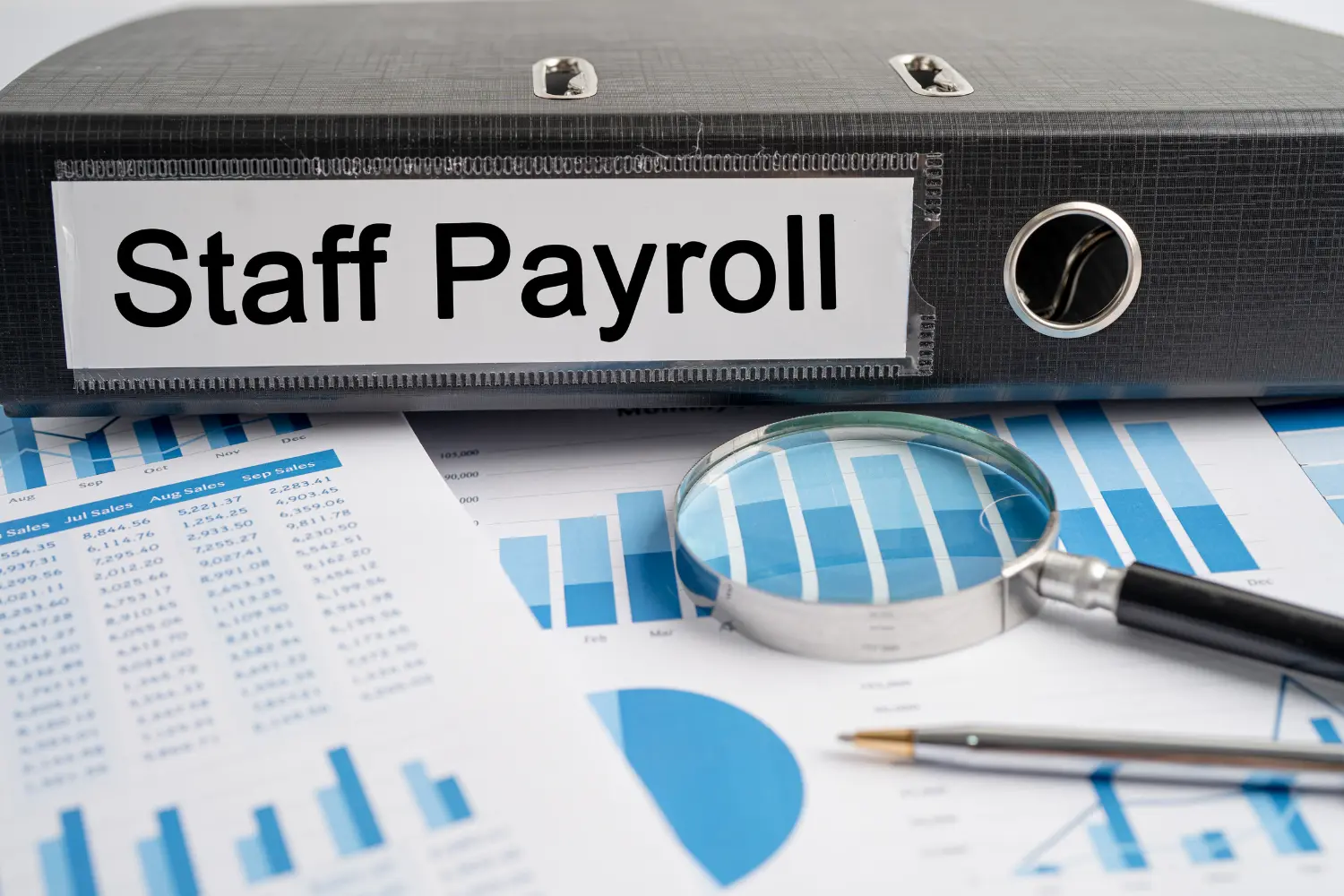Managing payroll and PAYE (Pay As You Earn) can feel overwhelming for UK employers, but it doesn’t have to be! Ensuring that your employees are paid correctly and on time while staying compliant with HMRC regulations is essential for running a smooth and stress-free business. At Black & White Accounting, we make payroll simple, helping businesses avoid costly mistakes and keep their employees happy.
Let’s break it down!
What is PAYE?
PAYE (Pay As You Earn) is HMRC’s system for collecting Income Tax and National Insurance Contributions (NICs) from employees’ wages. As an employer, it’s your responsibility to: ✅ Deduct Income Tax and NICs from employees’ wages. ✅ Report payroll information to HMRC through Real-Time Information (RTI). ✅ Pay HMRC the tax and NICs owed by the deadline each month or quarter.
If your employees earn above £123 per week, you must register for PAYE and follow HMRC payroll rules.
Setting Up Payroll – What You Need to Do
To ensure smooth payroll processing, follow these steps:
1. Register as an Employer with HMRC
Before paying staff, you must register your business for PAYE through HMRC. This should be done at least two weeks before your first payday.
2. Choose Payroll Software
To handle PAYE calculations, reporting, and compliance, use HMRC-approved payroll software such as:
- Xero Payroll
- QuickBooks Payroll
- BrightPay
- HMRC’s Basic PAYE Tools (for smaller businesses)
Payroll software automates deductions, tracks payments, and ensures compliance with RTI reporting.
3. Collect and Maintain Employee Information
Ensure you have the following details for each employee: ✅ Full Name and Address ✅ National Insurance Number ✅ Tax Code (provided by HMRC or from a P45) ✅ Bank Details (for salary payments) ✅ Start Date and Salary Details
Payroll Deductions Explained
Each time you run payroll, you must deduct:
- Income Tax – Based on the employee’s tax code and salary.
- National Insurance Contributions (NICs) – Paid by both the employee and employer.
- Student Loan Repayments (if applicable).
- Pension Contributions (if your business is part of an auto-enrolment scheme).
Once calculated, deductions must be reported to HMRC via RTI submissions before payday.
Payroll Deadlines and Reporting
To stay compliant, you must: ✅ Submit Full Payment Submissions (FPS) to HMRC on or before payday. ✅ Pay PAYE liabilities to HMRC by the 22nd of the following month (or the 19th if paying by cheque). ✅ Keep payroll records for at least 3 years, as HMRC may audit your payroll at any time.
Missing payroll deadlines could result in penalties, so it’s essential to stay on top of reporting and payments.
What About Auto-Enrolment for Pensions?
If you have eligible employees, you must enrol them into a workplace pension scheme under auto-enrolment rules. Employers must: ✅ Deduct pension contributions from employee wages. ✅ Make employer contributions (minimum 3% of salary). ✅ Register with a compliant pension provider (e.g., Nest, The People’s Pension). ✅ Provide employees with opt-in and opt-out options.
Failing to comply with auto-enrolment rules can lead to fines from The Pensions Regulator.
Benefits-in-Kind (BIK) and Payroll
Some employers provide additional perks to employees, known as benefits-in-kind (BIK). These can include: ✅ Company cars ✅ Private health insurance ✅ Gym memberships ✅ Interest-free loans
BIKs are subject to Income Tax and National Insurance, and must be reported to HMRC via a P11D form or through payroll. Employers may also have to pay Class 1A NICs on these benefits. It’s essential to track and report benefits correctly to avoid unexpected tax liabilities.
Construction Industry Scheme (CIS) and Payroll
If your business operates in the construction industry, you may need to comply with the Construction Industry Scheme (CIS). Under CIS: ✅ Contractors must deduct tax at source (20% or 30%) from subcontractor payments and pass it to HMRC. ✅ Subcontractors must register for CIS to receive lower tax deductions. ✅ Employers must file monthly CIS returns to report payments and deductions.
Failing to follow CIS rules can lead to penalties and cash flow issues for subcontractors. If you’re involved in construction, getting CIS right is crucial.
Closing a PAYE Scheme
If your business no longer needs to operate a PAYE scheme—perhaps due to ceasing trading, restructuring, or no longer having employees—you must formally close it with HMRC. To do this: ✅ Submit a final Full Payment Submission (FPS), marking it as the last payroll submission. ✅ Inform HMRC through your payroll software or by contacting them directly. ✅ Set your payroll scheme status to ‘ceased’ in your software. ✅ Settle any outstanding PAYE liabilities to avoid penalties. ✅ Retain payroll records for at least 3 years, as HMRC may request them in the future.
Once these steps are completed, HMRC will confirm the closure, ensuring you remain compliant and avoid unnecessary administrative burdens.
Common Payroll Mistakes to Avoid
❌ Incorrect Tax Codes – Leads to underpaid or overpaid tax, requiring corrections. ❌ Late RTI Submissions – Can result in HMRC fines. ❌ Missing PAYE Deadlines – Late payments attract penalties and interest charges. ❌ Not Issuing Payslips – Employers must provide employees with a detailed payslip each payday. ❌ Failing to Keep Payroll Records – HMRC requires businesses to maintain payroll records for at least 3 years.
How Black & White Accounting Can Help
Payroll and PAYE don’t have to be a headache. At Black & White Accounting, we: ✅ Handle payroll processing to ensure employees are paid correctly and on time. ✅ Manage PAYE compliance so you avoid HMRC penalties. ✅ Advise on payroll software to automate and simplify the process. ✅ Ensure pension auto-enrolment compliance to meet your legal obligations. ✅ Assist with Benefits-in-Kind reporting to avoid unnecessary tax charges. ✅ Help construction businesses navigate CIS compliance to prevent fines and cash flow issues. ✅ Assist in closing PAYE schemes correctly, ensuring full compliance with HMRC requirements.
We take the stress out of payroll, so you can focus on running your business with confidence.
📞 Get in touch today and let us handle your payroll, so you don’t have to!



